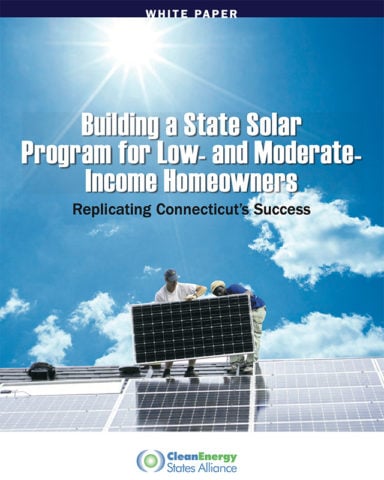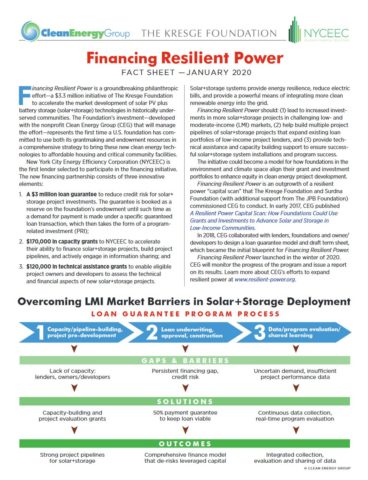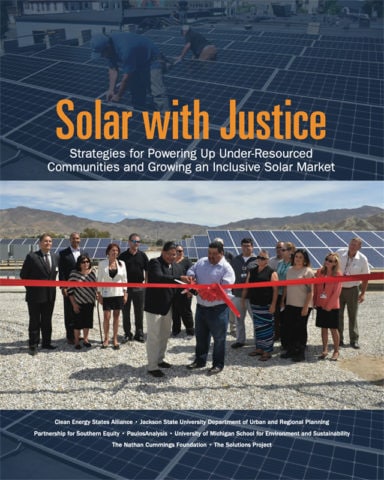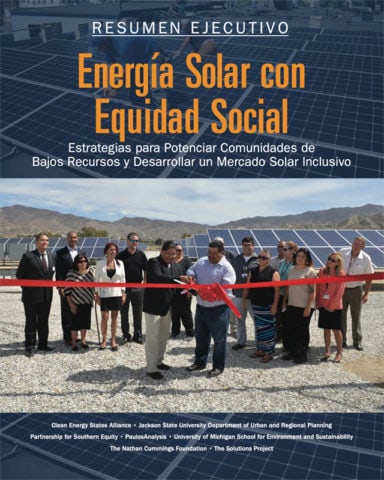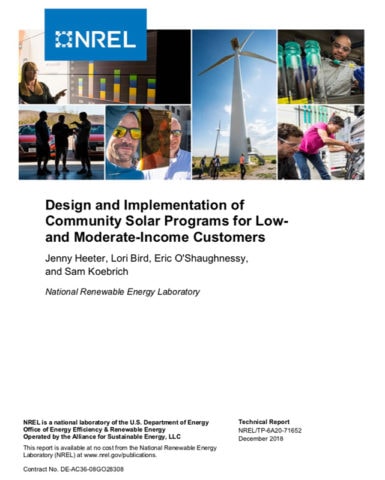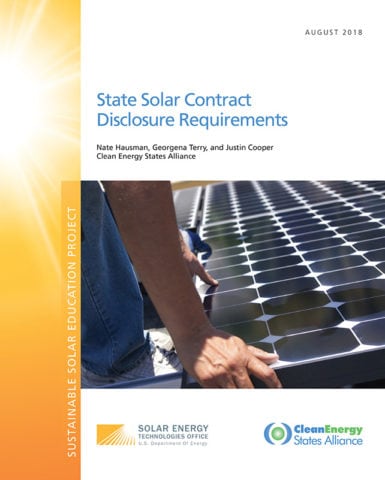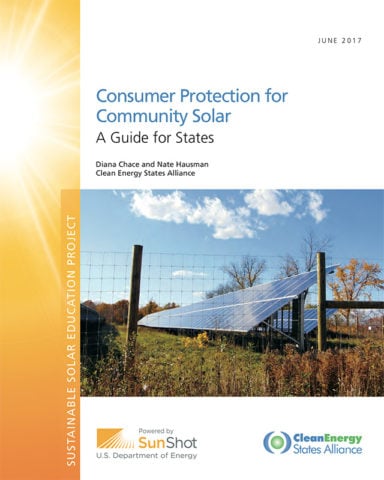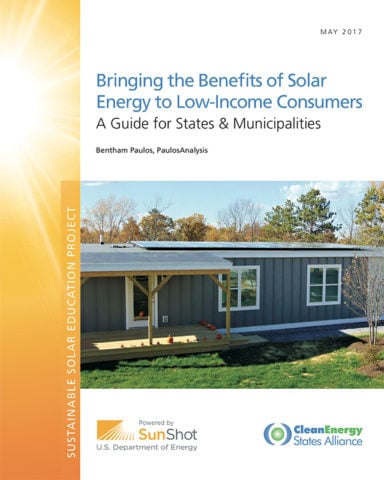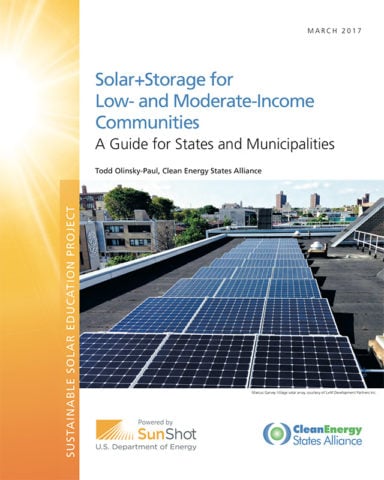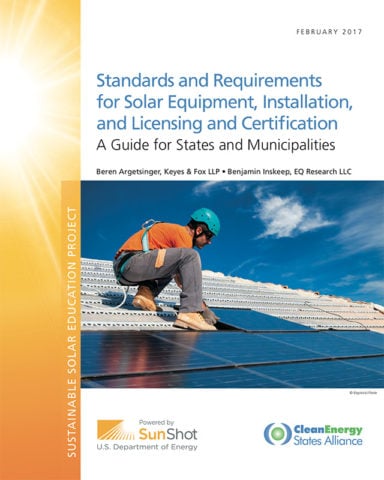Project Menu
Scaling Up Solar for Under-Resourced Communities - Resources
This paper aims to inform states across the country about Connecticut’s solar program to help low- and moderate-income homeowners benefit from solar photovoltaics.
Financing Resilient Power is a new, groundbreaking philanthropic effort—a $3.3 million initiative of The Kresge Foundation to accelerate the market development of solar+storage technologies in vulnerable and disadvantaged communities.
This report aims to accelerate the implementation of solar in under-resourced communities in ways that provide meaningful, long-lasting benefits to those communities.
El objetivo del informe “Energía Solar con Equidad Social” es acelerar la implementación de energía solar en comunidades de escasos recursos en formas que proporcionen beneficios significativos y duraderos para estas comunidades.
This report reviews existing and emerging LMI community solar programs, discusses key questions related to program design, outlines how states can leverage incentives and finance structures to lower the cost of LMI community solar, and examines marketing and outreach considerations.
A rapidly growing residential solar market has created challenges for solar consumers. With so many households adopting solar and more PV systems installed, there is potential for solar consumer protection issues to emerge.
This guide discusses consumer protection issues that may arise in community solar projects for residential consumers, and the role states can play in ensuring appropriate consumer protections.
This guide outlines the obstacles that low-income households face in accessing solar power and provides a detailed overview of strategies that policymakers and government agencies can use to encourage low-income solar adoption.
This guide seeks to provide state and municipal officials with information to develop effective solar and battery storage (solar+storage) policies and programs that benefit low- and moderate-income (LMI) communities. It explores a range of policy approaches that have been successfully employed and provides program examples from states that have made LMI access to these technologies a priority.
This guide is intended as a starting point for program managers in states or municipalities who are developing or revising standards and requirements for installation, licensing and certification, equipment, and warranties for solar PV equipment and systems.



